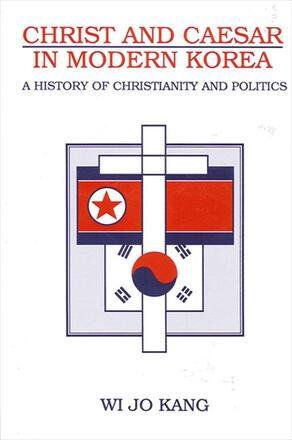
Christ and Caesar in Modern Korea
A History of Christianity and Politics
Alternative formats available from:
Description
A well-documented work on the history of modern Korea focusing on the history of Christianity in relation to politics.
Wi Jo Kang is Wilhelm Loehe Professor of World Religions and Mission, Wartburg Theological Seminary. He is the author of Religion and Politics in Korea Under the Japanese Rule and Christian Presence in Japan, and co-editor (with William J. Danker) of Future of the Christian World Mission.
Reviews
"This book is a clear and concise survey of the events and issues regarding the relationship of church and state in modern Korea. The author takes a historical approach in describing the events relating to the Korean Christian social movements which often have created friction and antagonism with the state or the government. This book also provides the historical, political, and social contexts for understanding the issues of church and politics in Korea from the beginning of Korean mission to the recent period. It has an excellent account and well documented descriptions regarding the beginning of Christianity in the late Chosen Korea, the persecution under the Japanese colonial rule of Korea, and the liberation and unification movements of the contemporary Korean church. What I like most about this book is that the author discusses the issues of church and state in a clear and consistent manner." — Young-chan Ro, George Mason University
"I like the way that the history of Christianity is presented in the broad context of political developments in Korea. Instead of a chronological approach, the book focuses on important issues in each epoch and recapitulates the dynamic interplay between Christianity and politics. It helps me to understand the significance of Christianity in shaping some critical issues that Korea has to face in her modernity." — Jung Young Lee, Drew University Theological School